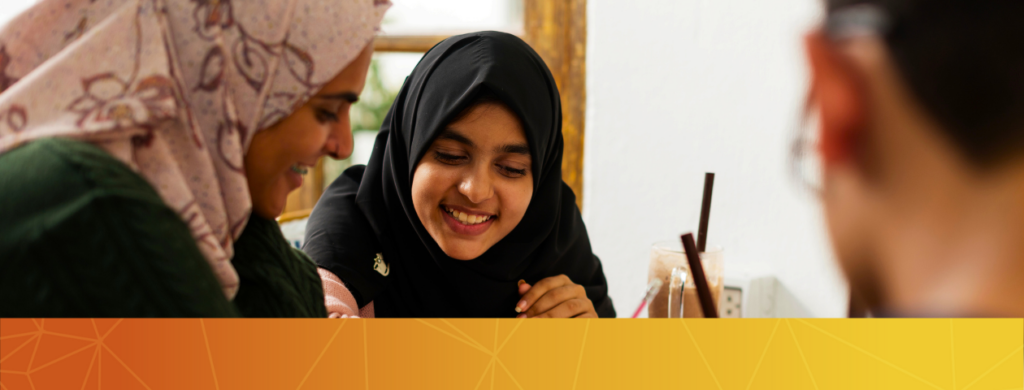
With the QS World University Ranking: Sustainability 2024 now live, we spoke to Leah Cowen, Vice-President, Research and Innovation, and Strategic Initiatives, at the world number one university – the University of Toronto (U of T) – to better understand why sustainability is important for them and their students, and what the future holds for their sustainability efforts.
Why is sustainability important to the University of Toronto?
Sustainability is one of the most critical issues of our time and presents a call to action for all institutions globally, especially those that are responsible for preparing future generations. It is our unique responsibility as a university committed to inclusive excellence to meet every aspect of this great challenge of the 21st century.

How will being ranked #1 in the QS World University Rankings: Sustainability 2024 impact your student recruitment strategy?
Students increasingly want to connect with and belong to excellent and sustainable institutions. Graduate students and post-doctoral fellows want to contribute to sustainability challenges with top researchers in their field and in other disciplines. We want future agents of change to come to U of T – that is part of our theory of change. This recognition from QS is a clear signal to prospective students that U of T reflects their values and will provide them with the education and experiences that will equip them to better their communities, country and the planet.
Do you work with other institutions, businesses or charities on sustainability projects, initiatives or research? If so, who, and how do you work together?
At U of T, our commitment to and work on sustainability extends well beyond the borders of our campus into our cities and surrounding regions, across Canada and into countries around the world. We convene international networks, and we team up with community groups and not-for-profits, industry, businesses and the health care sector to advance research and innovation on climate change and other sustainable development goals.
We provide training, knowledge dissemination and mobilization, and as a trusted facilitator, we create space for dialogue on neutral ground allowing people to negotiate the changes they need for transition, and develop cross-sectoral partnerships. We work internationally with the U7+ Alliance of World Universities, University Climate Change Coalition (UC3), and the International Sustainable Campus Network (ISCN). Locally, we work with the Urban Climate Action Project, a university-city partnership to help implement the City of Toronto’s climate action strategy, TransformTO.
In April 2023, UCAP launched a four-year Visionary Communities project with Toronto Metropolitan University (TMU) and the East Scarborough Storefront and Catalysts’ Circle (community groups) to identify and pilot solutions for low-carbon resilience
U of T’s Climate Positive Energy initiative is working with industry and government to launch a testing facility for real-time simulation of electricity grid models in our Grid Modernization and Testing Centre.
What sustainable activities are ongoing at U of T?
U of T has adopted a whole-of-institution approach to sustainability, which means looking across the institution systematically for opportunities to integrate sustainability internally and externally, from curriculum to operations to our endowment and engagements. We are always striving to do more and to evolve to meet the emerging challenges around us. A few ongoing activities include:
Pathways Program: Whether through a certificate or degree program, as a major or a minor, as part of an existing degree program or through co-curricular activities, and no matter the program – engineering, landscape architecture or Middle Eastern studies, for example – U of T is committed to providing students with sustainability education and learning opportunities, initiatives or events, for which they will receive recognition on their degree or co-curricular record.
Climate Positive Campus: In keeping with our commitment to regenerative sustainability, the St. George campus in 2021 committed to becoming climate positive before 2050. This is the first such net positive commitment that we know of by a university.
Decarbonizing the endowment: Along with its annual Carbon Footprint Report and TCFD (Task Force on Climate-related Financial Disclosures) Report, University of Toronto Asset Management published the 2022 Integrated Annual Report, which, for the first time, merged investment processes and results with detailed analysis of how environmental, social and governance (ESG) factors are considered in investment decision-making and stewardship activities. Highlights include elimination of direct exposure to fossil fuels in the endowment (divestment), a new carbon footprint reduction target of 50 per cent by 2030, and measures to increase investment in indexes that exclude fossil fuel companies.
“This recognition from QS is a clear signal to prospective students that U of T reflects their values”
The University of Toronto scored very highly in the Environmental Education lens – what do you do to educate students to understand and make a difference to the environment?
We are committed to providing sustainability learning opportunities for every U of T student regardless of degree program. The Pathways Program is key to achieving this goal – but it’s not the only way for students to weave sustainability into their learning. It is especially important that students’ environmental education has practical application outside the bounds of the university setting. We want our students to experience hands-on, community engaged learning – through internships, co-ops, partnerships with external organizations and governments/agencies, and Living Labs.
Students are half of the environmental education equation. Our professors and researchers are conducting cutting edge research that will advance progress on sustainability goals, while learning about opportunities for pedagogical innovation through a Community of Practice on Sustainability Teaching.
How do you promote your sustainability efforts to prospective students?
We have increased our efforts to make the public – including prospective students – aware of all of our sustainability activities, via the website and the different sustainability champions and departments on campus. In addition, through our communications work we share the amazing discoveries, findings and technological advances our researchers are making to advance sustainable development goals. Increasingly, students want to know that their university will equip them to address critical challenges facing our country and the world today.
“It is especially important that students’ environmental education has practical application outside the bounds of the university setting.”
What feedback do you get from current students on your sustainability initiatives?
Students at U of T are embracing new sustainability opportunities by taking up extra-curricular learning opportunities, awards and grants and work-experience programs. We have seen a 31 per cent increase in undergraduate enrolment across U of T’s Sustainability Scholar programs, a significant increase in the number of students enrolled in for-credit courses that involve engagement with community partners, and a jump in student registration for workshops and events that celebrate sustainability.
What advice do you have for institutions aspiring to be more sustainable?
While leadership from the top is absolutely essential, never underestimate the amount of support and ambition from within your community to advance progress on sustainability goals. Know your strengths, what you can bring to the table, where you want to be – and get started with a focus on immediate and meaningful gains. There are many excellent networks of higher education groups offering support and guidance on best practices to making institutions more sustainable.
What are the future sustainability trends? What is next for the University of Toronto’s sustainability mission?
We are building a strong foundation on sustainability within U of T, and leading by example as we take the necessary steps to decarbonize our historic St. George campus in the heart of downtown Toronto. We hope to strengthen relationships with community, industry and government partners to extend our learnings beyond campus boundaries. Through our international networks we hope to identify relevant university/network assets (such as expertise, our collective brokering potential, partnerships) and channel them toward promising sector-level interventions led primarily by non-state actors to address priority areas of the climate emergency.



